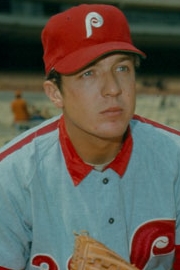The 1993 Philles: Behind the Baseball
In the summer of 1993, the Philadelphia Phillies seemed invincible to many in the baseball world. But all of that came to a screeching halt one night in October. And no, I’m not talking about the infamous home run no Phillies fan should be forced to rewatch. The fact is, Joe Carter’s walk-off home run was a foregone conclusion; a moment sealed in fate by events that unfolded just days earlier. It was October 20, 1993. The Phillies appeared to have game 4 of the World Series sewn up with a five run lead going into the late innings. A Phillies win would have tied up the series at 2, with one game left in Philadelphia, and potentially 2 more in Toronto. But in the top of the eighth, all hell broke loose, robbing Phillies fans of much of their hope of capping off what had been an incredible season with the franchise’s second World Series win in its 110 year history in the major leagues. Riding High Phillies fever swept through the Delaware Valley in the summer of 1993. That season Phi...

